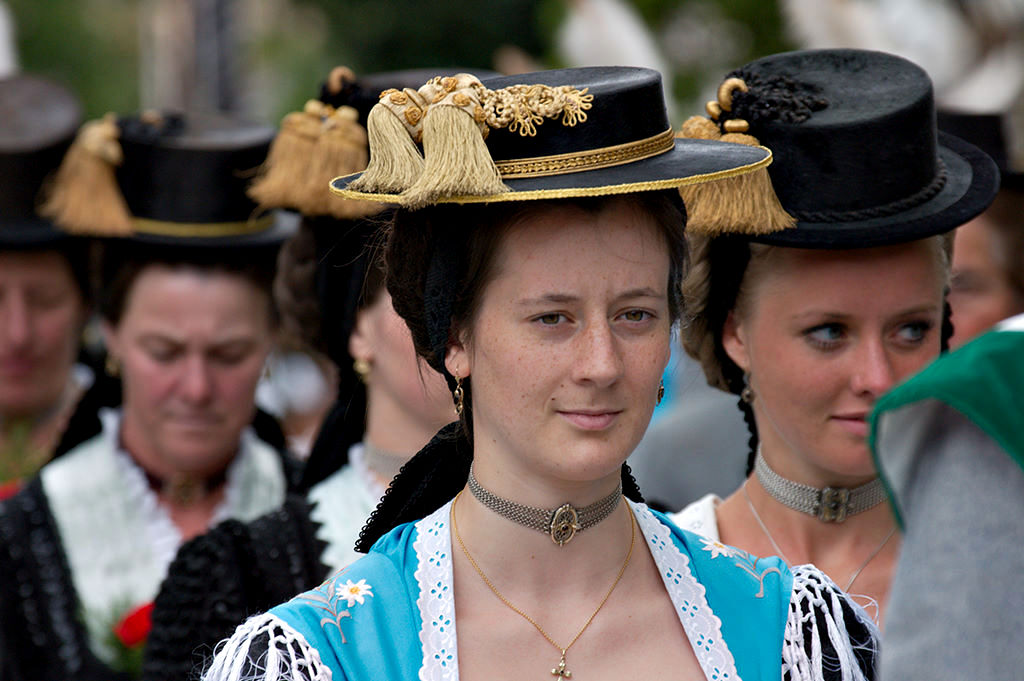the translation of ‘kropfband’ – the traditional necklace these women are wearing – as choker made me mistrust the various online dictionaries, as in my ears this sounds a bit weird. but as they all agree, who am i to dissent.
 focusing on the chokers proofed to be difficult when the groups were marching, so i was more then grateful for several unintended stops that gave me the opportunity for close inspection. as everybody was in high spirits – the bad weather had stopped just for this day – photographing was no problem, just seeking eye content asking for consent and then making pictures.
focusing on the chokers proofed to be difficult when the groups were marching, so i was more then grateful for several unintended stops that gave me the opportunity for close inspection. as everybody was in high spirits – the bad weather had stopped just for this day – photographing was no problem, just seeking eye content asking for consent and then making pictures.
 even the impressive zoom with the long lens hood did not create any camera shyness, but of course it is not the right tool to capture unobserved moments. it was a different kind of street photography, where the chance for good picture was to behave so naturally that the subjects just noticed and forgot.
even the impressive zoom with the long lens hood did not create any camera shyness, but of course it is not the right tool to capture unobserved moments. it was a different kind of street photography, where the chance for good picture was to behave so naturally that the subjects just noticed and forgot.


a tradition that is still well maintained. I glad to see it. Regards from Yogyakarta Indonesia.
Markus,
What is the literal translation to English of 'kropfband'?
I ask because "choker" is, as near as I know, the ordinary term in English for a thing worn tightly around the neck, whether by elegant ladies in the Victorian era, or by courtesans at the French court. It's just the name for it, which I guess is why the translations you got were so consistent.
Carl, the 'kropfband' is indeed as you describe 'a thing worn tightly around the neck' (kropf is struma in medical terms, and this struma was quite common in former times in bavaria). For me this term was astonishing because its affinity with the verb to choke, which I would see fit for a dog collar but not for adornment.